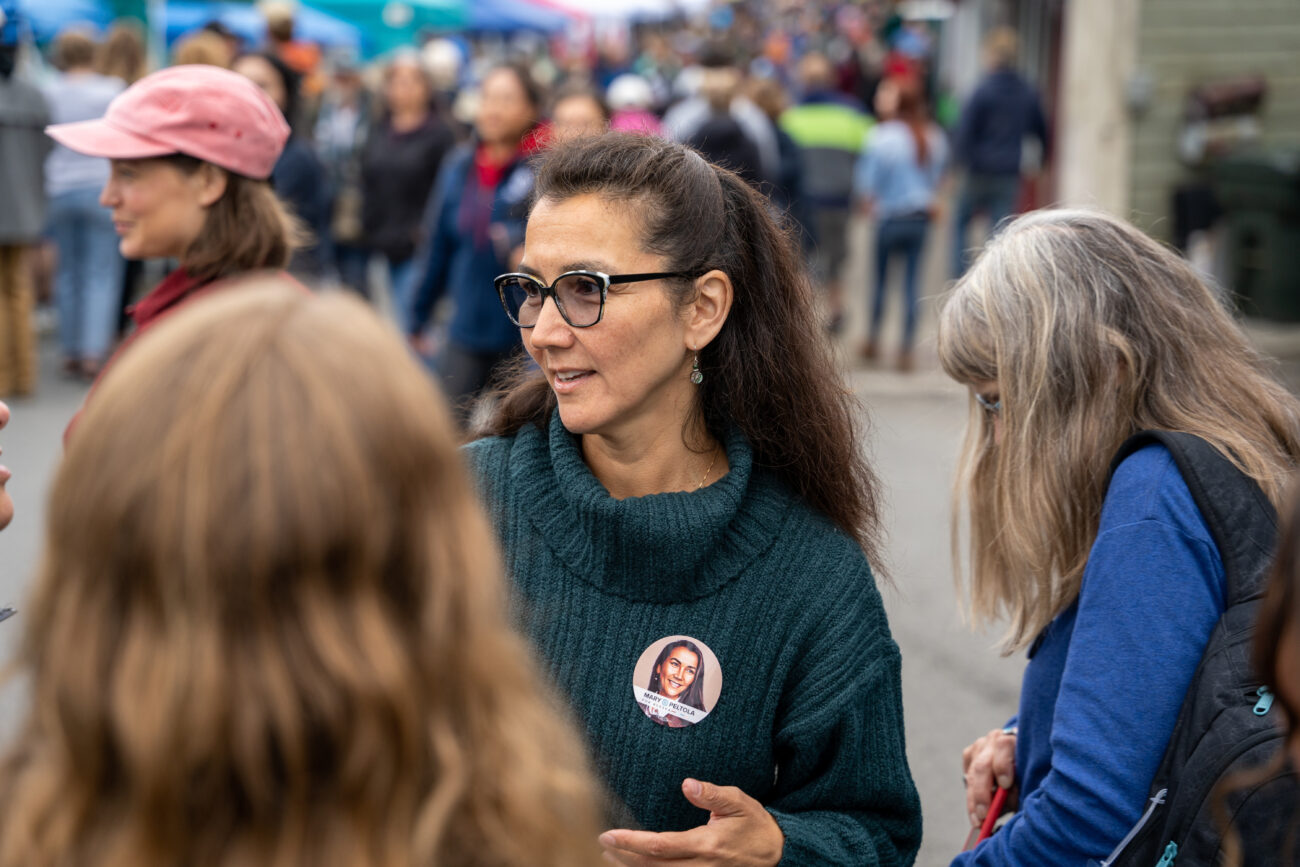
Alaska’s sole congressional representative is urging the federal government to do more in the transboundary watersheds of Southeast Alaska.
The United States and Canada share dozens of watersheds throughout Alaska and the Lower 48. Over 100 years ago (in 1909), the two countries signed an agreement to collaborate and co-manage the watersheds through the Boundary Waters Treaty, which is administered by the International Joint Commission (IJC). But while the commission has more than a dozen standing boards to oversee specific watershed issues across the northern United States, it doesn’t have one in Southeast Alaska.
Earlier this week (April 24), Rep. Mary Peltola announced her support for the formation of an International Watershed Board to bring together stakeholders from Southeast Alaska, British Columbia and the U.S. and Canadian federal governments. It would be a major step towards fulfilling the long-standing requests of tribal and municipal governments throughout Southeast Alaska for a more open and collaborative watershed management process as mineral exploration in B.C. grows along major transboundary rivers.
KSTK’s Sage Smiley spoke to Peltola about what prompted her support for a more formal international process. She says it comes down to widespread support from Southeast tribal governments and communities.
Read a transcript of the interview below (the transcript has been lightly edited for clarity):
KSTK (Sage Smiley): To start with the obvious, you’ve expressed your support for an International Watershed Board. As far as I’m aware, that’s a first for Alaska’s congressional delegation, so what made you want to support an International Watershed Board for Southeast Alaska specifically?
REP. MARY PELTOLA: Well, my understanding is that people in Southeast Alaska have been asking for this for some time – both the Native community and the non-Native community have been asking for accountability and oversight on the transboundary water issues for over a decade and maybe even longer. So I just really felt like it was important to voice my unequivocal support for this effort, because there is such widespread support of this throughout Southeast Alaska. I haven’t run into any Alaskans who are not in support of having a commission to oversee it. And this is something that Congressman [Don] Young supported. I don’t know how out front he was about that, but Congressman Young did support this.
KSTK: Why is this important, in your understanding? What would this do that is not already being done by the mere existence of the IJC (International Joint Commission), for example?
PELTOLA: I know that there are watershed councils in other states in the country that share borders with Canada – I think there are ones in Idaho and Montana, I think there are others. And there isn’t really a formal process to have a transboundary Watershed Council like this. So we need to make sure that – I feel confident that there is the political will among residents of Southeast, but we just need to make sure that people within policy positions and elected positions understand that the political will exists, and then seeing that translate to elected and appointed officials, that same kind of political will.
KSTK: This isn’t the only area with transboundary watersheds in Alaska, why Southeast specifically for this support of an international watershed board?
PELTOLA: Because there is so much political will in the communities and among fishermen and among stakeholders themselves. This really is a stakeholder-driven process; this has been a grassroots effort for many years. So I just am responding to folks from Southeast Alaska who have been clamoring for this for quite a while.
KSTK: There’s only so much, of course, that members of Congress or anyone – borough governments in Southeast Alaska – can do about this. But what’s next? So you support this formation – What happens? What else can you do, can residents of Southeast Alaska do to continue pushing for this process?
PELTOLA: I think that it’s incumbent upon us as Alaskans, to communicate that our communities and livelihoods are at risk. And we need to make sure that our neighbors are including us in their decisions in Canada. Currently, they are not including us, and they are not engaging in a real discussion. There have been some responses that would indicate that they are receptive, but then those taper off and go away. And so I just think it’s important that we communicate to the State Department, the United States State Department to help us. They have not been proactive, regardless of which administration we’re in. And I’ll be communicating my support for this Watershed Board strongly to our State Department and Canadian federal and provincial counterparts. The Boundary Waters Treaty was signed in 1909, and this process has been accepted as international law for well over a century, but we’re not really seeing that translated in Southeast Alaska at the ground level.
KSTK: Is there anything else you’d want to add about your support for this additional process to include Alaskans and people across the border in Canada in this watershed management process?
PELTOLA: I just want to reiterate that I think the support is very, very strong among every stakeholder group in Southeast Alaska. And we’re united as Alaskans on this effort, and where we do have broad-based consensus, we should be working together and moving the dial for protections in our waters and our watersheds. As Alaskans, there is nothing more important to us than our watersheds and our ecosystems, and we stand ready to protect them and make sure that they’re protected across the border where there are things that can have implications on our side. We have a very united front and we want to see forward progress on this collectively.
KSTK: Thank you very much for sharing your thoughts today, I really appreciate it.
PELTOLA: Thank you, Sage.
Get in touch with KSTK at news@kstk.org or (907) 874-2345.











